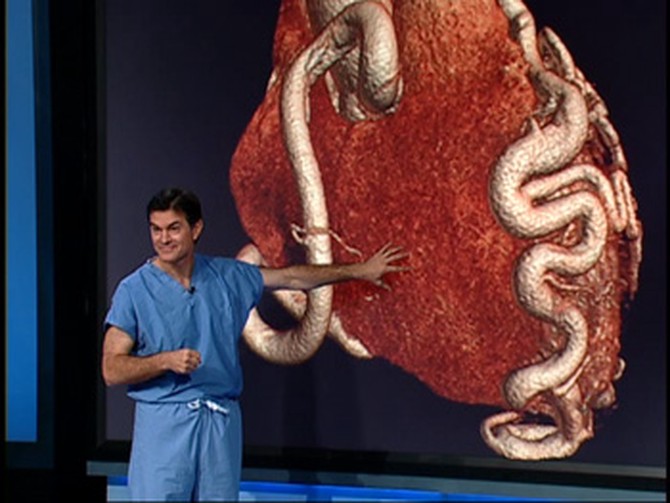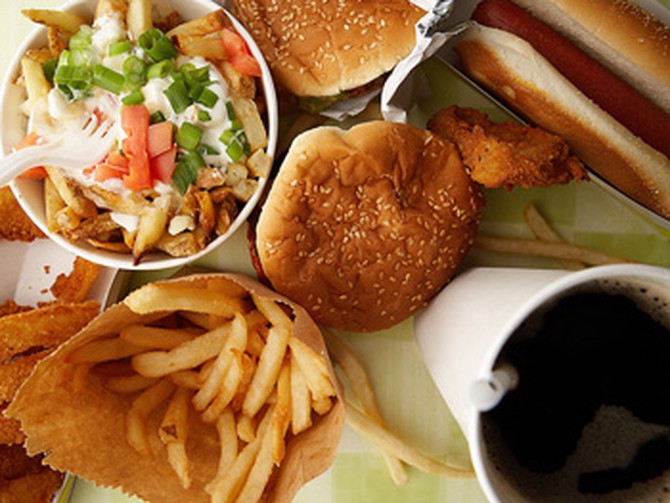Health News Roundup
By Fritz Lenneman

Mammogram Debate
A new recommendation on frequency of mammograms by the U.S. Preventive Services Task Force has sparked a major debate in the breast cancer community.
The report, published in Annals of Internal Medicine, urges several deviations from long-held screening standards. For women without a genetic risk or family history of breast cancer, they recommend:
This report is highly controversial, and several of the major breast cancer awareness groups—including the American Cancer Society and Susan G. Komen for the Cure—reject the findings and have no plan to discontinue their guidelines.
The report, published in Annals of Internal Medicine, urges several deviations from long-held screening standards. For women without a genetic risk or family history of breast cancer, they recommend:
- Starting mammograms at age 50, instead of age 40.
- Getting a mammogram every two years, instead of every year.
- Complete elimination of self-exams.
This report is highly controversial, and several of the major breast cancer awareness groups—including the American Cancer Society and Susan G. Komen for the Cure—reject the findings and have no plan to discontinue their guidelines.

Sudden Cardiac Death Will Kill 1 in 8 Men
A cardiologist at Northwestern University has found that men who are now 40 years old have a one in eight chance of dying from a condition called sudden cardiac death. Most sudden cardiac death is from heart attacks, but other conditions include irregular heartbeats or infections. These are defined as sudden cardiac death if the patient dies within an hour of the first sign of symptoms.
Dr. Donald M. Lloyd-Jones, the lead author of the analysis, is quoted in the Wall Street Journal describing sudden cardiac death as "one of the most devastating manifestations" of heart disease.
Women have a lower risk of sudden cardiac death, a one in 24 likelihood. However, as Dr. Oz has said, heart disease is the number one killer of women . The best ways to reduce risk are to quit smoking, eat a healthy diet, exercise and consult a doctor.
Dr. Donald M. Lloyd-Jones, the lead author of the analysis, is quoted in the Wall Street Journal describing sudden cardiac death as "one of the most devastating manifestations" of heart disease.
Women have a lower risk of sudden cardiac death, a one in 24 likelihood. However, as Dr. Oz has said, heart disease is the number one killer of women . The best ways to reduce risk are to quit smoking, eat a healthy diet, exercise and consult a doctor.

Jamie Oliver's Health School Lunch Success
In 2004, celebrity chef Jamie Oliver started a campaign to improve school lunches in Greenwich, a borough of London. He helped school officials replace unhealthy processed foods like Turkey Twizzlers—Britain's answer to chicken fingers—with iron-rich, brain-boosting foods like green vegetables and red meat.
Now, five years later, the results are showing great promise. According to the Times of London , a report by the Institute for Social and Economic Research shows the 11-year-old students who ate Oliver's lunches had improved test scores—by 8 percent in science and 6 percent in English—and reduced absences due to illness by 15 percent.
Oliver is now trying to bring those positive results to the United States. For the TV show Jamie Oliver's Food Revolution , which will air in 2010, he is attempting to change the school lunches in Huntington, West Virginia. Oliver chose Huntington because it is, according to the Associated Press, the unhealthiest city in America.
11 healthy school lunch ideas
Now, five years later, the results are showing great promise. According to the Times of London , a report by the Institute for Social and Economic Research shows the 11-year-old students who ate Oliver's lunches had improved test scores—by 8 percent in science and 6 percent in English—and reduced absences due to illness by 15 percent.
Oliver is now trying to bring those positive results to the United States. For the TV show Jamie Oliver's Food Revolution , which will air in 2010, he is attempting to change the school lunches in Huntington, West Virginia. Oliver chose Huntington because it is, according to the Associated Press, the unhealthiest city in America.
11 healthy school lunch ideas

Will Alcoholic Energy Drinks Be Banned?
The Food and Drug Administration, acting on letters from 19 state attorneys general, have threatened to ban drinks that combine alcohol and caffeine.
These beverages, which are commonly marketed to college students using social networking sites, have been linked with increased risks of injury, drunken driving and sexual assault. According a New York Times report on the FDA's announcement, "Caffeine may lead people to underestimate how drunk they are, giving drinkers a false sense of confidence that they can perform tasks they are too impaired to undertake."
The FDA has demanded that marketers prove that their drinks are safe or else face efforts to remove them from store shelves.
These beverages, which are commonly marketed to college students using social networking sites, have been linked with increased risks of injury, drunken driving and sexual assault. According a New York Times report on the FDA's announcement, "Caffeine may lead people to underestimate how drunk they are, giving drinkers a false sense of confidence that they can perform tasks they are too impaired to undertake."
The FDA has demanded that marketers prove that their drinks are safe or else face efforts to remove them from store shelves.

Child Food Allergies on the Rise
A new study published in the journal Pediatrics shows that the number of children being treated for food allergies increased 18 percent between 1997 and 2007. This means that about 4 percent of children have food or digestive allergies.
The most common food allergies in children include peanuts, tree nuts, seafood, dairy products, wheat and eggs.
What to do if you child has food allergies
The most common food allergies in children include peanuts, tree nuts, seafood, dairy products, wheat and eggs.
What to do if you child has food allergies

Diet and Depression
Besides the benefits of looking better and possibly being smarter, there is new evidence of another reason to switch to a healthy diet—reduced depression.
A study by researchers at University College London published in the British Journal of Psychiatry found that those with diets full of processed, fried, fatty, and sugar-laden foods had a 58 percent higher risk of depression. Meanwhile, those who ate a healthy diet reduced their risk of depression by 26 percent.
A study by researchers at University College London published in the British Journal of Psychiatry found that those with diets full of processed, fried, fatty, and sugar-laden foods had a 58 percent higher risk of depression. Meanwhile, those who ate a healthy diet reduced their risk of depression by 26 percent.

A Moment on the Lips, a Lifetime on the Hips
New research shows that annoying adage might actually be right. According to a study published by the journal Science Translational Medicine, junk food not only packs extra calories into your diet, it can also change the balance of bacteria in your gut. And this new bacteria population actually makes future weight gain easier and weight loss harder.
A shift in bacteria—which can occur in as little as 24 hours—can alter how your body will digest food, break down nutrients and store fat.
For the study at the Center of Genome Sciences at Washington University School of Medicine, mice who were given the junk food–friendly stomach bacteria gained weight, even if they were placed on low-fat diets. Researchers even found evidence that the mice passed on this bacteria to their offspring.
A shift in bacteria—which can occur in as little as 24 hours—can alter how your body will digest food, break down nutrients and store fat.
For the study at the Center of Genome Sciences at Washington University School of Medicine, mice who were given the junk food–friendly stomach bacteria gained weight, even if they were placed on low-fat diets. Researchers even found evidence that the mice passed on this bacteria to their offspring.
Published 11/18/2009

